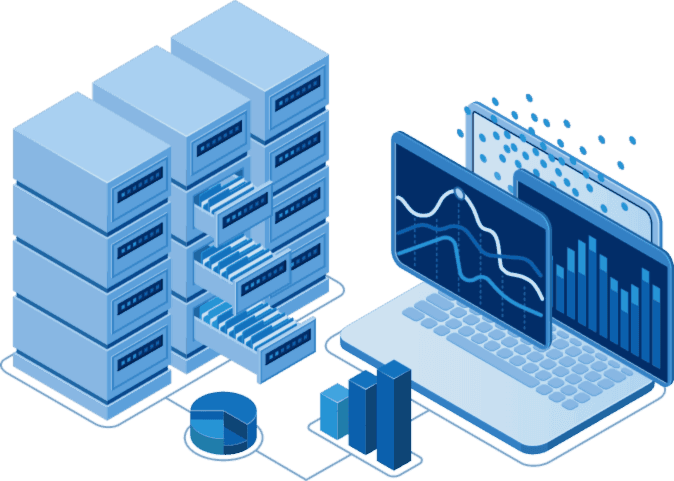EDI Outsourcing or In-House EDI: Making the Right Choice

LIKE.TG 成立于2020年,总部位于马来西亚,是首家汇集全球互联网产品,提供一站式软件产品解决方案的综合性品牌。唯一官方网站:www.like.tg
In modern business operations, organizations face a crucial decision regarding Electronic Data Interchange (EDI): whether to outsource or implement an in-house solution. The choice between EDI outsourcing or implementing an in-house EDI solution can be pivotal for organizations seeking to streamline their data exchange processes. This decision hinges on multiple factors, such as expertise, resources, control, and cost-effectiveness.
Understanding In-House EDI
In-House EDI refers to the practice of managing EDI processes and systems internally within an organization. When a company decides to implement in-house EDI, it means they are taking ownership of the entire EDI process within their own infrastructure instead of relying on a third-party service provider or outsourcing the function.
Benefits of In-House EDI
- Full Control: In-house EDI solutions completely control organizations’ systems. They can customize the solution to meet specific requirements and seamlessly integrate it with existing systems. This level of control allows businesses to quickly adapt to changes and tailor EDI processes to suit business needs. Furthermore, they can easily modify and enhance their solution as their business evolves, such as integrating new functionalities or streamlining existing processes.
- Operational Visibility: Managing EDI operations in-house provides clear visibility into system performance. This visibility enables users to identify and promptly resolve any issues. It also allows informed decision-making to optimize EDI processes.
Operational visibility facilitates data analysis by generating insightful reports, which provide valuable business intelligence for identifying trends and making data-driven decisions. - Cost Predictability: While in-house EDI solutions may require upfront investments, the long-term costs are more predictable. Once the system is set up, organizations have greater control over ongoing costs, such as software licensing and maintenance. This predictability aids in budgeting and financial planning. Moreover, leveraging existing IT infrastructure and resources reduces the need for significant additional investments, resulting in long-term cost savings.
Drawbacks of In-House EDI
- Higher Upfront Costs: Implementing an in-house EDI system typically requires significant upfront investments in hardware, software licenses, and personnel. These costs can be prohibitive for smaller or more budget-constrained companies.
- Technical Expertise: Managing an in-house EDI system requires specialized technical knowledge. Finding and retaining skilled personnel with the expertise to design, implement, and maintain EDI infrastructure may be challenging. Additionally, the cost of hiring and training employees with the necessary technical expertise can add to the overall expenses of maintaining an in-house EDI system.
- Scalability Challenges: Scaling an in-house EDI system can be complex and time-consuming. As a business grows or requirements change, there may be a need to invest in additional hardware or software licenses, and integration with existing systems can be challenging. An EDI system without proper scalability measures in place may create bottlenecks, hindering the ability to meet customer demands or collaborate effectively with trading partners.
Exploring EDI Outsourcing
EDI outsourcing is the practice of delegating the management of EDI operations to a third-party service provider. This provider typically handles the technology infrastructure, software, and support required to run the entire EDI system.
Advantages of EDI Outsourcing
- Cost Savings: By opting for outsourcing, businesses can avoid upfront investments in hardware, software licenses, and dedicated personnel, thereby reducing capital expenses. Additionally, outsourcing enables organizations to leverage economies of scale as the service provider spreads the costs among multiple clients.
By leveraging the existing infrastructure of the service provider, businesses can avoid the expenses associated with upgrading and maintaining their own EDI system. - Expertise and Support: Outsourcing to a reputable service provider allows businesses to leverage their expertise and ensure that professionals handle their EDI operations. Reputable service providers have teams of experienced EDI specialists who are well-versed in the intricacies of EDI technology.
They handle critical tasks such as mapping, data transformation, and partner onboarding, ensuring that EDI transactions are executed smoothly and accurately. Outsourcing also provides access to ongoing technical support. Service providers have dedicated support teams available to assist businesses with any issues or challenges that may arise. - Scalability and Flexibility: As businesses grow, their EDI requirements may change, and scaling in-house EDI operations to meet evolving needs can be challenging and time-consuming. However, outsourcing provides the flexibility to easily scale EDI operations up or down based on requirements.
This scalability and flexibility enable businesses to adapt swiftly to changing market conditions. Whether expanding into new markets, adding trading partners, or launching new products, outsourcing EDI operations offers the agility necessary to support business growth and stay competitive.
Disadvantages of EDI Outsourcing
- Lack of Control: When businesses decide to outsource their EDI operations, they are entrusting a third-party provider with a critical aspect of their business. While this brings advantages in terms of expertise and support, it also means relinquishing some control over the EDI system.
In the event of any issues or disruptions with the service provider’s infrastructure or operations, it can have a direct impact on the business. Conducting due diligence, assessing their backup systems and disaster recovery plans, and ensuring clear service level agreements can help mitigate the challenges associated with reduced control. - Dependency on Service Provider: When businesses opt to outsource their EDI operations, they become dependent on the service provider for the efficient functioning of their EDI system. If the service provider encounters technical difficulties or ceases operations, it can disrupt business operations and result in productivity losses.
To mitigate these risks, it is crucial to establish a strong partnership with the service provider and maintain clear lines of communication to address any concerns promptly.
Key Factors to Consider When Choosing Between EDI Outsourcing and In-House Solutions
When making a choice between EDI outsourcing and in-house solutions, several key factors need to be carefully considered. These factors will vary depending on each business’s unique needs and resources.
- Cost: Assess upfront and ongoing costs. Outsourcing provides immediate savings by eliminating upfront investments, while in-house solutions offer control over long-term costs.
- Technical Expertise and Support: If your business lacks EDI knowledge, outsourcing to a reputable provider ensures access to expertise and support. In-house solutions may be preferable if you have skilled IT personnel for customization.
- Scalability and Flexibility: Outsourcing offers greater scalability and flexibility as the provider can adjust their infrastructure to meet changing needs. In-house solutions may require more effort and investment to scale up.
Maximizing Efficiency and Savings: The Case for EDI Outsourcing
EDI outsourcing is often a preferred choice when businesses have limited resources and budgets, given that the industry is predicted to reach $525 billion by 2030, according to Grandview Research. This approach offers advantages such as access to expertise and resources without substantial upfront investments, making it cost-efficient, especially for businesses with lower transaction volumes that can opt for a monthly fee based on usage.
Outsourcing grants scalability and flexibility to adapt to changing needs, access to specialized knowledge and technical support, and the opportunity to focus on core competencies. Considering these factors can help businesses determine if outsourcing is the optimal solution for their EDI operations.
LIKE.TG EDIConnect is a comprehensive EDI software that simplifies and streamlines B2B data exchange processes, empowering businesses to meet trading partner demands. Businesses can gain control with detailed partner profiles, custom mapping, and data validation. LIKE.TG EDIConnect can process EDI files of any complexity and size, ensuring scalability.
It can also translate and ingest files effortlessly with advanced mapping and validation. The solution supports various communication protocols for seamless file exchange. LIKE.TG EDI Connect integrates with ETL, enabling data processing and maximizing value. Discover the power of LIKE.TG EDIConnect and revolutionize your B2B data exchange. Request a personalized demo today to learn more.

现在关注【LIKE.TG出海指南频道】、【LIKE.TG生态链-全球资源互联社区】,即可免费领取【WhatsApp、LINE、Telegram、Twitter、ZALO云控】等获客工具试用、【住宅IP、号段筛选】等免费资源,机会难得,快来解锁更多资源,助力您的业务飞速成长!点击【联系客服】
本文由LIKE.TG编辑部转载自互联网并编辑,如有侵权影响,请联系官方客服,将为您妥善处理。
This article is republished from public internet and edited by the LIKE.TG editorial department. If there is any infringement, please contact our official customer service for proper handling.
















